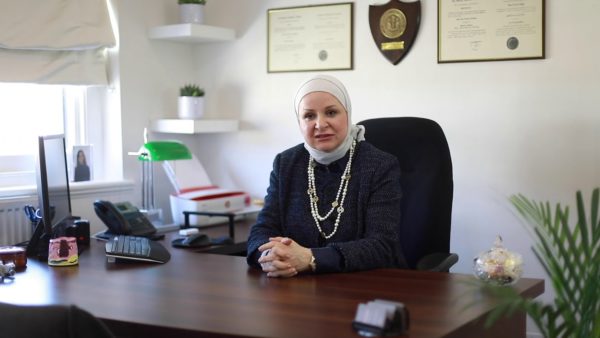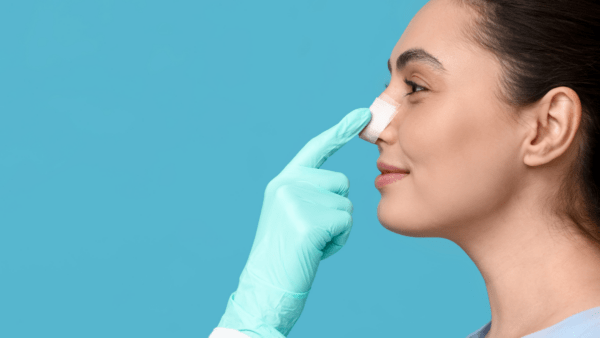
Dispelling the Myths of Acne ‑ Expert Tips from Dr Hiba Injibar, Consultant Dermatologist at Harley Street
Few things are better than glowing, clear skin. Like seriously, don’t you just love it when your friends look at you, beaming and quiz you on how you manage to keep those wrinkles and lines at bay? ‘How is it even possible that you have no wrinkles? We’re the same age! Tell us your secret?’

The skin is the largest organ of the body and we spend hundreds, if not thousands, of pounds on expensive skincare. We moisturise, drink copious amounts of water, get the exercise and fresh air we need daily, take our vitamins…the list goes on… all with one very important main goal; to maintain the best skin health possible.
In the world of beauty and all things skincare, acne is one opponent that needs to be taken seriously. If not treated correctly, acne can cause serious skin problems, notably permanent scarring, as well as mental health issues associated with depression and anxiety.

There are many common myths surrounding acne that can be unhelpful, and as a result we teamed up with Dr Hiba Injibar whose clinic is based on Harley Street in central London.

We got the opportunity to sit down and speak with the dermatology expert on the topic of acne and maintaining a reliable skin-care routine. Here in this post, she is dispelling the myths surrounding acne, helping you on your mission to start the year with fresh and supple skin!
What causes acne?
Acne is usually found on the face, chest, back and shoulders. ‟Acne first appears when a pore in the skin clogs.” Says Dr Hiba Injibar. “This clog begins with dead skin cells. Normally dead skin cells are shed from the surface of the skin daily. Normal skin also produces sebum, commonly known as oil. Sebum production can be increased during certain phases of life like during puberty. Excess oil can cause dead skin cells to stick together inside the pore and these cells then get trapped there.”
She continues: “Bacteria (P.acnes) have the perfect environment for multiplying quickly, especially when there is a lot in pores.The skin surrounding the pores gets irritated and the pore gets red and swollen. This inflammation can damage the lining of the pore and goes deep into the skin causing an acne cyst or nodule to appear.”
At what age does the onset of acne typically occur?
“Acne usually appears pre-puberty and in puberty, but it is not limited to adolescence. It can also appear in newborns and in adults, more often with women rather than men.” Dr Hiba Injibar explains.
What’s the ultimate treatment for acne?
“If the acne treatment given to you by your GP is not working properly or if your acne is getting severe or starting to leave scars, you should see a dermatologist so soon as possible- you can ask your GP to be referred to a suitable dermatologist in your area.”
Dr Hiba Injibar tells YCB; “A dermatologist can customise treatment for each patient and this may include combination therapy (more than one treatment). Treatments may be topical (applied to the skin) or systemic (medicine).
“A dermatologist is also the only doctor able to prescribe a strong medication for bad acne called isotretinoin if he/she recommends you need it. This medication can cure acne.”
“There are several things that can make acne worse, including homemade remedies, scrubbing skin and eating foods with a high sugar content, like chocolate. Some other factors which make acne worse are applying oily cosmetics, greasy creams and makeup, squeezing your pimples which might leave a scar, or not using maintenance treatment as acne can recur if you stop treating it completely.”
Helping people with mild to moderate cases of acne, Dr Hiba Injibar suggests a degreasing facial wash and some topical treatment creams. “These creams, unclog pores, reduce oil secretion, treat bacterial infection and reduce inflammation. Oil free moisturisers and sunscreens should be used. In some cases, a low dose of oral antibiotics will also be required.”
And for severe or scarring acne?
“It is important to get treatment from a consultant dermatologist.” She says. “Some cases may require medical treatment with isotretinoin, which only a consultant dermatologist can prescribe. Acne scarring is permanent and difficult to treat, but with the correct treatment great improvements can be made. These treatments may include surgical scar removal, deep chemical peels, laser peels, and in a few cases, fillers.”
Acne should be taken seriously, and you need to act fast and take preventative measures. Effective treatment and a cure for acne exist, but scars are much more difficult to treat than acne.
Acne can recur and maintenance treatment is important.
For more information or to book your appointment with Dr Hiba Injibar, visit www.dermasurge.co.uk














































